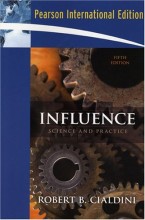Neuropsychological assessment of geriatric driving competence
14 important questions on Neuropsychological assessment of geriatric driving competence
Are driver with a clinical dementia rating of 0.5 more likely to cause accidents in driving?
Give a reason on why there is not a clear distinction between normal aging and abnormal aging and its effects on driving
Explain why it is difficult to predict driving ability in elderly
- Higher grades + faster learning
- Never study anything twice
- 100% sure, 100% understanding
Name the four neuropsychological predictors suggested by Bieliauskas (2005) as predicitors for driving ability.
2. attention-focused testing
3. executive testing
4. development driving in test-simulator
What problems can pose declined vision in driving ability? Name 4.
(2) not quickly comprehending signs
(3) reading maps
(4) identifying highway characteristics
Name two predictors for predicting detection and recognition road signs and hazards, time completing tasks, maneuvering ability, divided attention, overall driving performance index
What is the Useful field of view (UFOV) and how is it associated with driving?
How is selective attention involved in reduced ability to drive in early stages of dementia?
What is a particular deficit in elderly in selective attention related to driving?
Name a method for assessing visual attention in driving and explain findings in assessments
Who are at risk for accidents with regard to executive functioning?
Explain the Supervisory Attentional System (SAS) model of information processing in driving
Why is neuropsychological testing not useful for assessing driving abilities in elderly? Name a solution to overcome this problem.
Neuropsychological tests do predict crash accidents in driving simulator when older patients had AD. Name the tests that were used.
2. visuospatial impairment
3. reduction UFOV
4. reduced perception three-dimensional structures
5. visual attention skills
The question on the page originate from the summary of the following study material:
- A unique study and practice tool
- Never study anything twice again
- Get the grades you hope for
- 100% sure, 100% understanding






























